Today, in partnership with UNITE, NEWNet and IDPC, we launched the 2024 Manifesto for a Progressive EU Drug Policy, advocating for health, harm reduction, human rights, and evidence-based strategies in drug policy reform in anticipation of the upcoming European Parliament elections.
The European Union’s drug policy stands at a critical juncture as we approach the 2024 European Parliament elections. While the establishment of a new EU Drug Agency signals progress, in good part thanks to the work of the European Parliament in rooting the new agency in a health and social agenda, concerns arise over the European Commission’s support for a punitive ‘war-on-drugs’ approach. At the same time, the Commission has reduced funding and support for health interventions and for the role of civil society and communities in policymaking. Simultaneously, initiatives for a health-based regulation of cannabis, spearheaded by countries like Malta, Germany, and Luxembourg, highlight evolving perspectives across the continent.
In March, Correlation, NEWNet and IDPC initiated the Drug Policy Manifesto for the 2024 European Parliament Elections, laying down a vision for a pragmatic, innovative, and human rights-centred European drug policy that will foster healthier and safer communities. Since then, the Manifesto has gathered more than 600 signatories, including over 250 European drug policy NGOs, over 150 drug policy experts, and over 25 elected officials.
Today’s launch event, chaired by Katrin Schiffer, Executive Director of Correlation-European Harm Reduction Network and Head of the International Department of Stichting De Regenboog Groep, brought together MEPs, candidates, representatives from Civil Society Organisations and other drug policy experts, all committed to steering towards an EU drug policy that would make Europe safer, healthier, and more just.
Decriminalisation and a human-rights-based approach were reiterated as central themes during the event, emphasising the importance of meaningful community involvement in shaping effective drug policy.
“Let communities lead! Several groups of people who use drugs are not registered formally as NGOs. Nevertheless, they have a lot to teach us. These voices should be amplified!”
– Alexei Lakhov, Executive Director of the European Network of People Who Use Drugs
MEPs from the Pirate Party, Janka Michailidu and Sven Clement, emphasised the necessity for a more pragmatic EU drug policy, advocating for a holistic approach that integrates mental health perspectives and abandons the punitive ‘war-on-drugs’ paradigm. They also stressed the importance of coordinated approaches across EU member states to advance progressive drug policies.
“It doesn’t help if a European country is very progressive in drug policy if their neighbours are the complete opposite. It is very important, when it comes to drug policy, that we work across borders in Europe”.
– Sven Clement, MEP
MEP Isabel Santos highlighted the urgency of action at this pivotal moment, described as a ‘turning point’ as the European Parliament, the European Drugs Agency, and the European Commission embark on renewal processes. She also underscored the significance of enhancing cooperation with civil society, as outlined in Article 55 of the new EU Drugs Agency mandate.
“Whether it is about representing the diverse perspectives and empowering the voices of the affected communities; communicating relevant research, data or information on emerging challenges and trends; or upholding human rights and social justice, by prioritising harm reduction and treatment over punishment or enforcement-only view of the drugs phenomenon, this is the place to do it.”
– Isabel Santos, MEP
In conclusion, the initiators of the Manifesto presented several recommendations for MEPs,
- asking for their support in presenting the Manifesto to the LIBE Committee;
- calling on MEPs to consider the possibility of creating an informal working group within the European Parliament dedicated to drugs and drug policy discussions, which would regularly consult with civil society;
- encouraging them to ensure that civil society is invited to all drug-related hearings organised at the European Parliament;
- calling on MEPs to ensure that the European Commission implements the EU drug strategy 2021-2025 in a balanced way, and to hold EU institutions accountable for the securitisation of drug policy;
- urging them to encourage the European Commission to develop a new funding mechanism for drug policy projects, focusing on health and in particular harm reduction, as this topic has been neglected over the past few years over projects focusing on drug law enforcement and supply reduction.
Reaffirming our commitment as civil society, we will continue to discuss how to elevate the Manifesto and stimulate dialogue at both national and EU levels regarding our recommendations.
Join the movement – Find out more about the Manifesto and sign it here!
Watch the event’s recording:

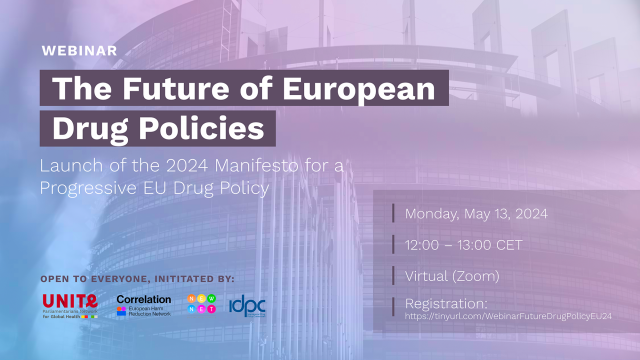

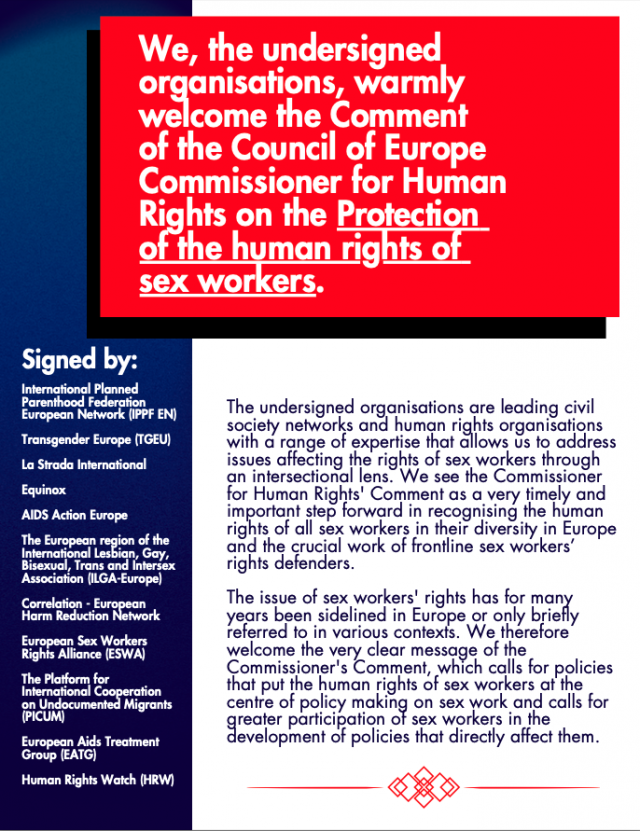
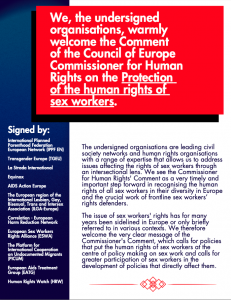
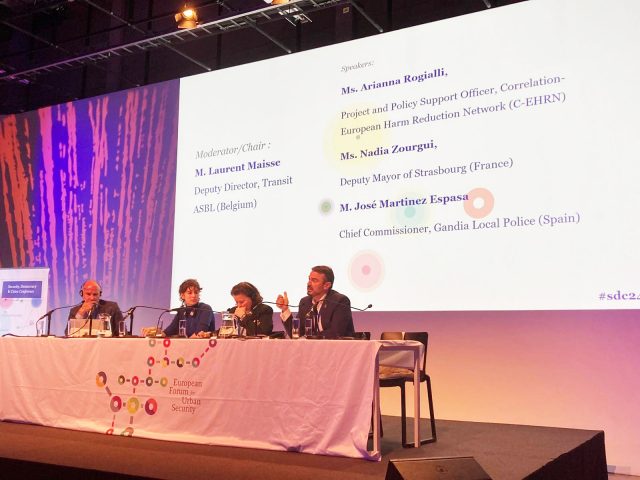
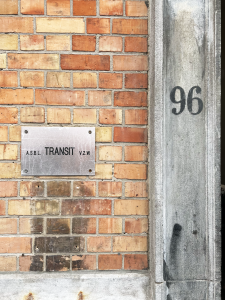 During the session, C-EHRN emphasised its dedication to organising collaborative initiatives with city-level actors in the harm reduction field, including mayors, policymakers, and civil society. We also highlighted the urgent need to eliminate barriers to accessing mental health support services and to support and fund low-threshold services that can better reach and assist people who use drugs and are experiencing mental health challenges. Furthermore, we drew attention to the importance of funding harm reduction services. We also shared best practices for effective communication about harm reduction and neighbourhood cooperation between harm reduction services, residents, and business owners.
During the session, C-EHRN emphasised its dedication to organising collaborative initiatives with city-level actors in the harm reduction field, including mayors, policymakers, and civil society. We also highlighted the urgent need to eliminate barriers to accessing mental health support services and to support and fund low-threshold services that can better reach and assist people who use drugs and are experiencing mental health challenges. Furthermore, we drew attention to the importance of funding harm reduction services. We also shared best practices for effective communication about harm reduction and neighbourhood cooperation between harm reduction services, residents, and business owners.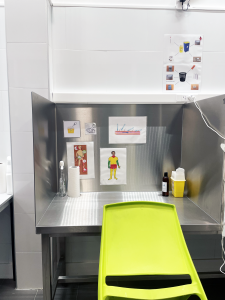 During the second day of the conference, we had the opportunity to visit the drug consumption room
During the second day of the conference, we had the opportunity to visit the drug consumption room